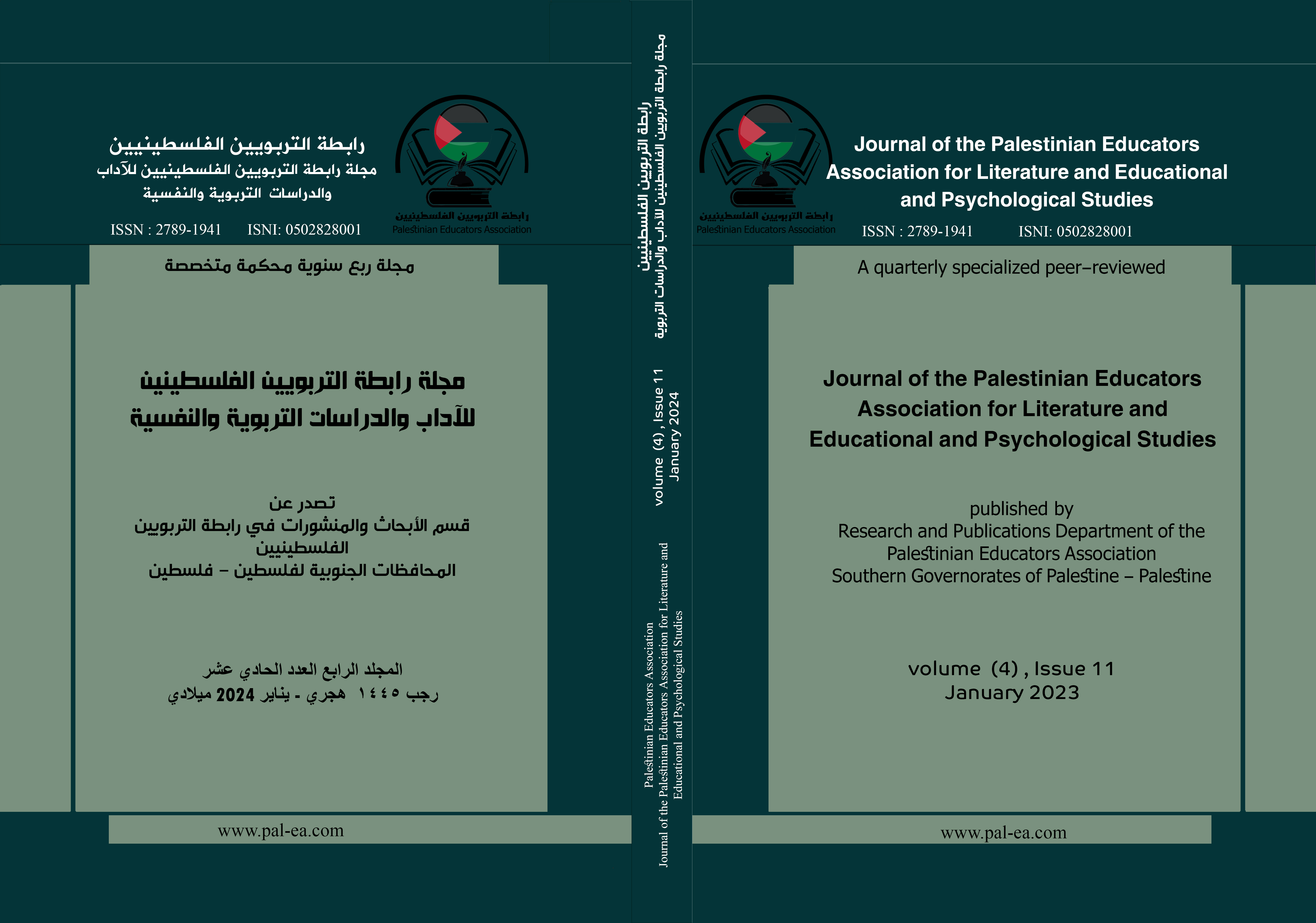تحليل الخطاب الشعري: قصيدة "لا تعتذر عما فعلت" لمحمود درويش نموذجاً
الكلمات المفتاحية:
الخطاب الشعري، تحليل ، محمود درويشالملخص
الملخص:
تناول هذا البحث الخطاب الشعري عند محمود درويش متوسل بمناهج تحليل الخطاب في قراءة النصوص والخطابات، الذي يشغل حيزاً واسعاً في الدراسات اللغوية والأدبية واللسانية. ويتخذ البحث من قصيدة "لا تعتذر عما فعلت" لمحمود درويش نموذجاً تطبيقياً.
وتكمن أهمية البحث في جانبين: الأول أنه يعالج نصاً شعرياً ويحلله تحليلاً عميقاً ويكشف عن أبعاده، والثاني متمثل في المنهج المتبع؛ فمنهج تحليل الخطاب منهج حديث قادر على تفكيك الخطاب وتحليل أنساقه الظاهرة والمضمرة.
واعتمد البحث على الآفاق الرحبة التي يتيحها منهج تحليل الخطاب، عبر استخراج البنية الكبرى للخطاب ودراسته، كالإشاريات الزمانية والمكانية والإشاريات الشخصية، والبنية الاحالية. وتكمن مشكلة البحث في الوقوف على عناصر الانسجام والاتساق في النص، وربط كل ذلك بالبنية الكلية للنص.
وتوصل البحث إلى عدد من النتائج من أهمها: أنّ البنية الكلية الكبرى للنص تجلت في إشكالية الأنا؛ إذ هو في مرحلة وآخره الشخصي في مرحلة ثانية، وأنّ الإشاريات الشخصية والمكانية، وترتيب الخطاب، وبنيته العليا، كان لها دور في تحقيق الاتساق والانسجام الخطابي.
التنزيلات
منشور
إصدار
القسم
الرخصة

هذا العمل مرخص بموجب Creative Commons Attribution-NonCommercial-ShareAlike 4.0 International License.
مجلة رابطة التربويين الفلسطينيين للآداب والدراسات التربوية والنفسية
الرقم الإلكتروني: 1941-2789
احتفاظ المؤلفين بحقوق الطبع والنشر
تسمح مجلة رابطة التربويين الفلسطينيين للآداب والدراسات التربوية والنفسية للمؤلفين بالاحتفاظ بحقوق الطبع والنشر ومنح المجلة حق النشر الأول مع العمل المرخص في نفس الوقت بموجب ترخيص Creative Commons Attribution (CC-BY) 4.0 الذي يسمح للآخرين بمشاركة العمل مع الاعتراف بتأليف العمل ونشره الأولي في هذه المجلة.
بشرط أن يكونوا أصحاب حقوق الطبع والنشر لعملهم، يستطيع المؤلفون الدخول في ترتيبات تعاقدية منفصلة وإضافية للتوزيع غير الحصري للنسخة المنشورة من العمل في المجلة (على سبيل المثال، نشرها في مستودع مؤسسي، في مجلة) أو نشره في كتاب) مع شكر على نشره الأولي في هذه المجلة.
يُسمح للمؤلفين ويتم تشجيعهم على نشر أعمالهم عبر الإنترنت (على سبيل المثال، في المستودعات المؤسسية، أو المستودعات الصارمة، أو على موقع الويب الخاص بهم) قبل وأثناء عملية التقديم.










